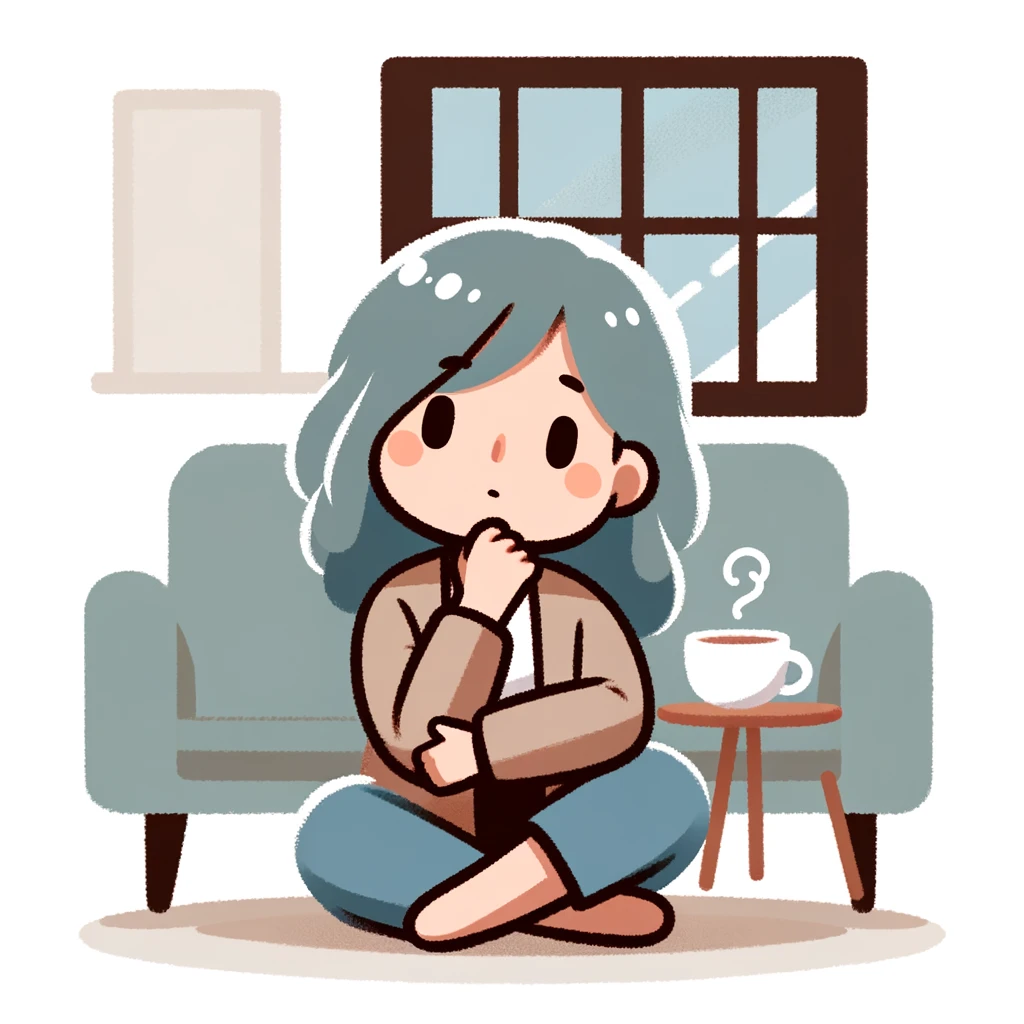Dysthymia and ADHD: Understanding Their Complex Connection

🌟 Understanding Dysthymia or Persistent Depressive Disorder (PDD)
Dysthymia, previously known as chronic depression, is now termed Persistent Depressive Disorder (PDD). Despite its various names, this disorder consistently represents a prolonged and often debilitating depression that may go unnoticed for years.
🤔 Understanding Dysthymia and ADHD: The Most Common Form of Depression Among ADHDers
For many, the link between ADHD (Attention-Deficit/Hyperactivity Disorder) and depression isn't immediately clear. However, a deeper dive into the statistics and lived experiences of ADHD individuals reveals a compelling narrative.
🧩 A groundbreaking finding from the National Comorbidity Survey Replication study indicates that adult patients with ADHD are seven times more likely to develop dysthymia than those without the disorder (Kessler et al., 2006). But why?
🔍 Much of the research focuses on the pathological aspects. There's speculation that the executive functioning deficits in ADHD might lead to an increased susceptibility to dysthymia. Could impulsivity or inattentiveness characteristic of ADHD trigger these depressive states?
🛑 However, this inquiry often overlooks societal and psychological factors, especially for women. Women with ADHD frequently face societal criticisms, being told they aren't "good enough," urged to "try harder," or encouraged to 'mask' their ADHD traits to fit norms.
💔 Imagine the psychological toll of experiencing these stigmatizing events daily. Over time, they contribute to a pervasive sense of low self-worth, creating fertile ground for dysthymia.
🔍 Late Diagnosis: Women often receive ADHD diagnoses later in life, accompanied by a mix of relief and grief. Relief from having an explanation, but grief over the lost years battling an unnamed adversary. The emotional weight of these feelings, coupled with societal pressures, can deepen the roots of dysthymia.
🌸 How ADHD Helps Dysthymia Develop in Women
ADHD in women is often underrepresented in studies. Symptoms in women can differ from the "classic" ADHD symptoms seen in men. Instead of overt hyperactivity, women may exhibit inattentiveness, daydreaming, and emotional dysregulation. This difference can lead to misdiagnoses, late diagnoses, or even no diagnosis at all.
📌 TLDR Key Takeaways from this blog on Dysthymia and ADHD
- Dysthymia, also known as Persistent Depressive Disorder (PDD), is a chronic form of depression that can go unnoticed in women for years, but affects daily functioning and quality of life.
- ADHD women are at a significantly higher risk of developing dysthymia, often due to overlapping symptoms and challenges in emotional regulation.
- For women with ADHD, societal expectations and the pressure to 'mask' symptoms can exacerbate feelings of inadequacy and low self-worth, contributing to the development of dysthymia.
- Early diagnosis and therapy, , are crucial for managing dysthymia and preventing its long-term impact on mental health and well-being.
- Self-care strategies, such as maintaining a regular routine, and seeking support from professionals and loved ones, are essential for managing dysthymia and improving overall quality of life.
💡 The societal narrative around women also plays a role. Expectations to be organized, attentive, and emotionally intuitive can lead to feelings of inadequacy or self-doubt. Over time, these negative self-perceptions can contribute to the development of dysthymia.
🚪 Masking: The societal pressure to conform can push women to hide their symptoms, leading to internal distress. This constant act of suppressing one's true self can be emotionally exhausting and further increases the risk of developing dysthymia.
📋 DSM-V Criteria for Dysthymia (Persistent Depressive Disorder)
To be diagnosed with dysthymia, one must experience:
- Depressed mood for most of the day, for more days than not, for at least two years.
- Two or more of the following:
- Poor appetite or overeating.
- Insomnia or hypersomnia.
- Low energy or fatigue.
- Low self-esteem.
- Poor concentration or difficulty making decisions.
- Feelings of hopelessness.
📊 Facts About Dysthymic Depression or Chronic Depression
- Most cases begin before age 21.
- Early therapy is crucial for developing healthy coping mechanisms.
- Risk factors include early trauma, family history of depression, and ADHD.
- There’s a genetic component often seen in those with first-degree relatives diagnosed with major depression.
- Higher risk of substance abuse and other mental health conditions.
- More common in females than males.
- Those diagnosed often face declines in quality of life, social support, and marital satisfaction.
- Some may later be diagnosed with bipolar disorder.
- Impacts workplace performance, earnings, and personal relationships.
- Links exist between dysthymia and a weakened immune system, inflammation, and neurological brain changes.
- Increased suicidality risks.
🛠️ Think You Have ADHD and Dysthymia? Here's What You Can Do
✔️ Self-care and Self-accommodation: Prioritize your well-being with consistent sleep patterns, a balanced diet, and regular physical activity. Consider mindfulness and relaxation techniques.
✔️ Accept Help: Therapy, particularly Cognitive Behavioral Therapy (CBT), can be effective in treating both conditions. Support from professionals, family, or support groups can be invaluable.
🤝 How to Help Someone with Dysthymia and ADHD
- 📚 Educate Yourself: Understand the challenges they face by reading about ADHD and dysthymia.
- 👂 Listen Actively: Sometimes, just having someone to talk to can make all the difference.
- 💬 Encourage Professional Help: Suggest seeking a diagnosis and potential therapeutic interventions.
- 🕊️ Be Patient: Both conditions come with unique challenges. Patience and understanding can go a long way.
🔬 Relevant Research
- A study published in the Journal of Affective Disorders found a strong co-morbidity between ADHD and various depressive disorders, including dysthymia or chronic depression(Biederman et al., 2008).
- Research in the Journal of Clinical Psychiatry suggests cognitive-behavioral interventions can be effective in treating ADHD symptoms in adults, potentially reducing the risk of co-morbid conditions like dysthymia (Solanto et al., 2010).
- A study in the Archives of General Psychiatry highlights the importance of early detection and treatment of ADHD to prevent co-morbid conditions, including dysthymia (Kessler et al., 2011).
References:
- American Psychiatric Association. (2013). Diagnostic and statistical manual of mental disorders (5th ed.). Arlington, VA: Author.
- Johnson, D., Dupuis, G., Piche, J., Clayborne, Z., & Colman, I. (2018). Adult mental health outcomes of adolescent depression: A systematic review. Depression and Anxiety, 35(8), 700-716.
- Junko Ishizaki and Masaru Mimura, “Dysthymia and Apathy: Diagnosis and Treatment,” Depression Research and Treatment, vol. 2011.
- Kessler, R.C., Adler, L., Barkley, R., Biederman, J., Conners, C.K., Demler, O., ... & Zaslavsky, A.M. (2006). The prevalence and correlates of adult ADHD in the United States: results from the National Comorbidity Survey Replication. The American journal of psychiatry, 163(4), 716-723.
Note: Medical information obtained from this website is not intended as a substitute for professional care. If you have or suspect you have a problem, you should consult a healthcare provider.
More at the National Institute of Mental Health
Medical information obtained from this website is not intended as a substitute for professional care. If you have or suspect you have a problem, you should consult a healthcare provider.




